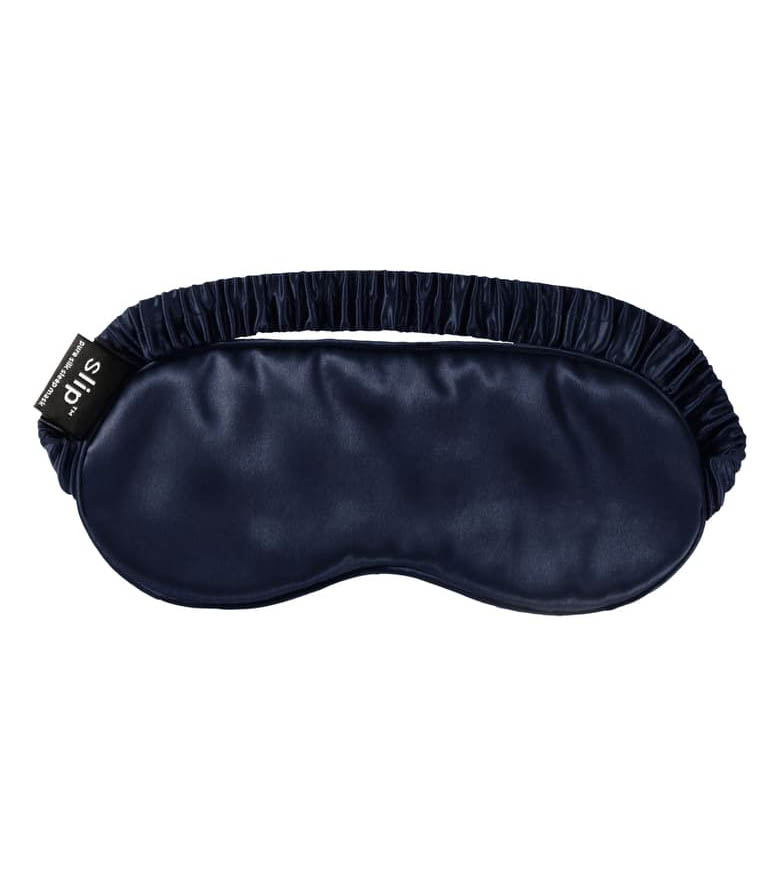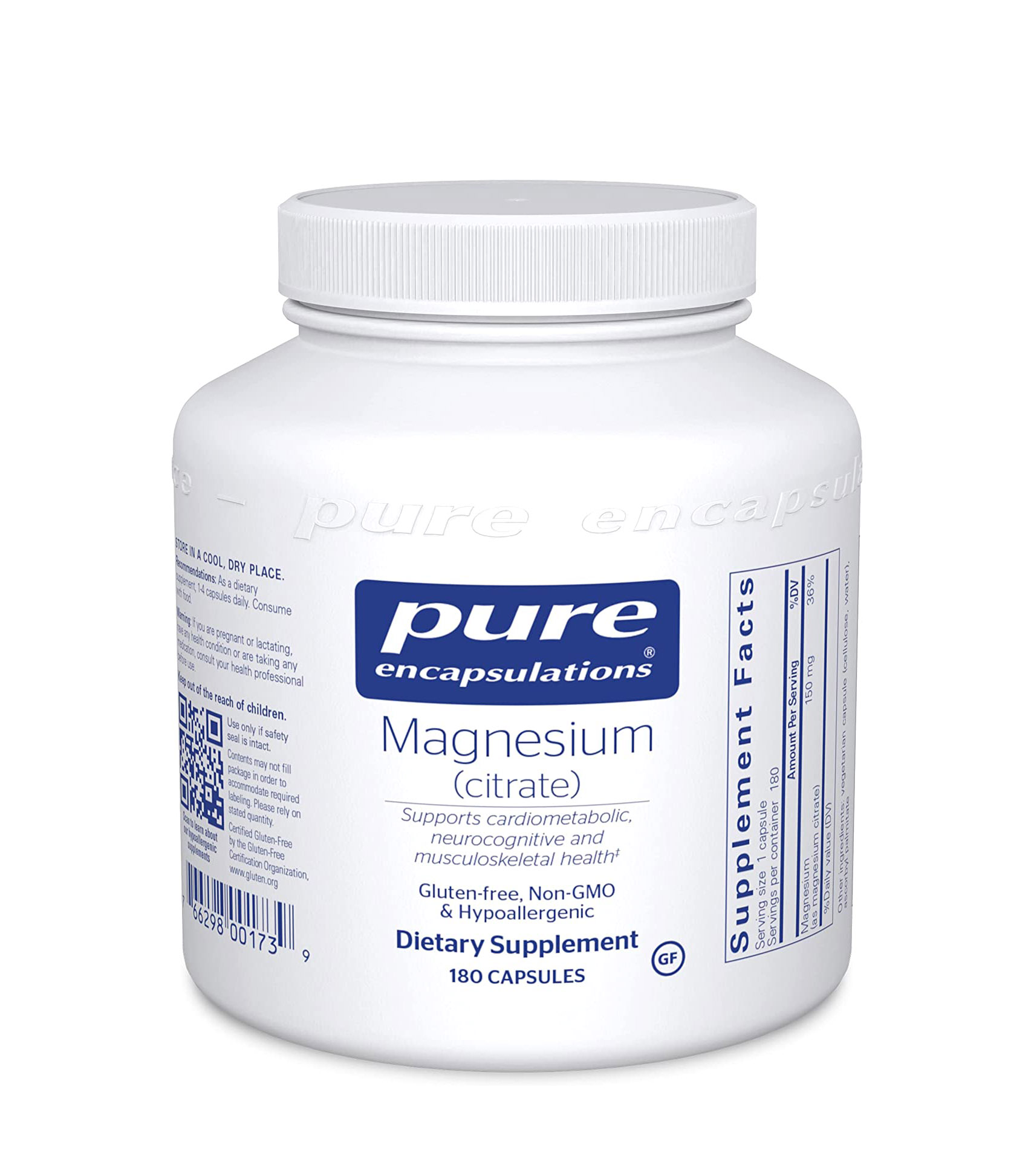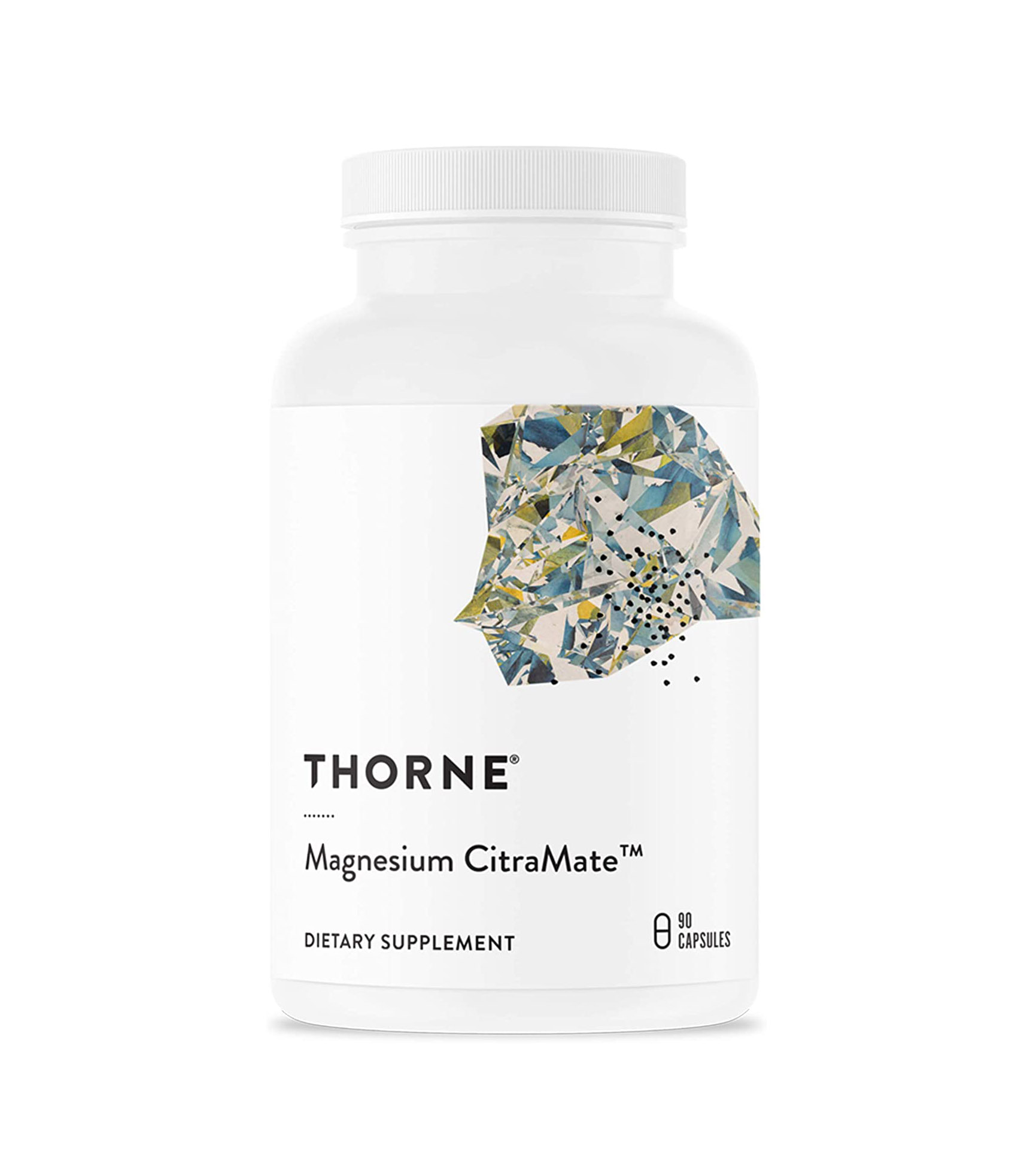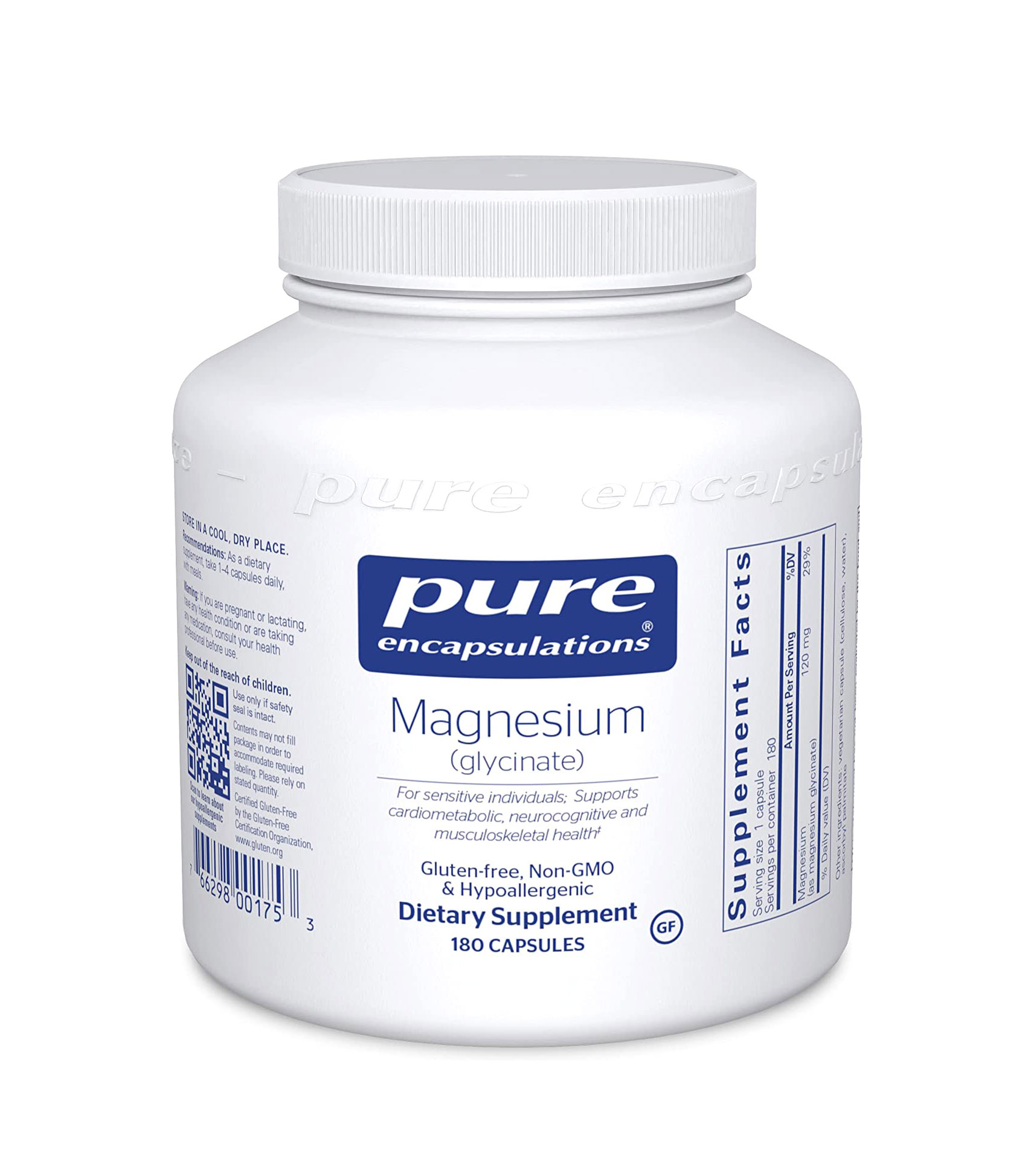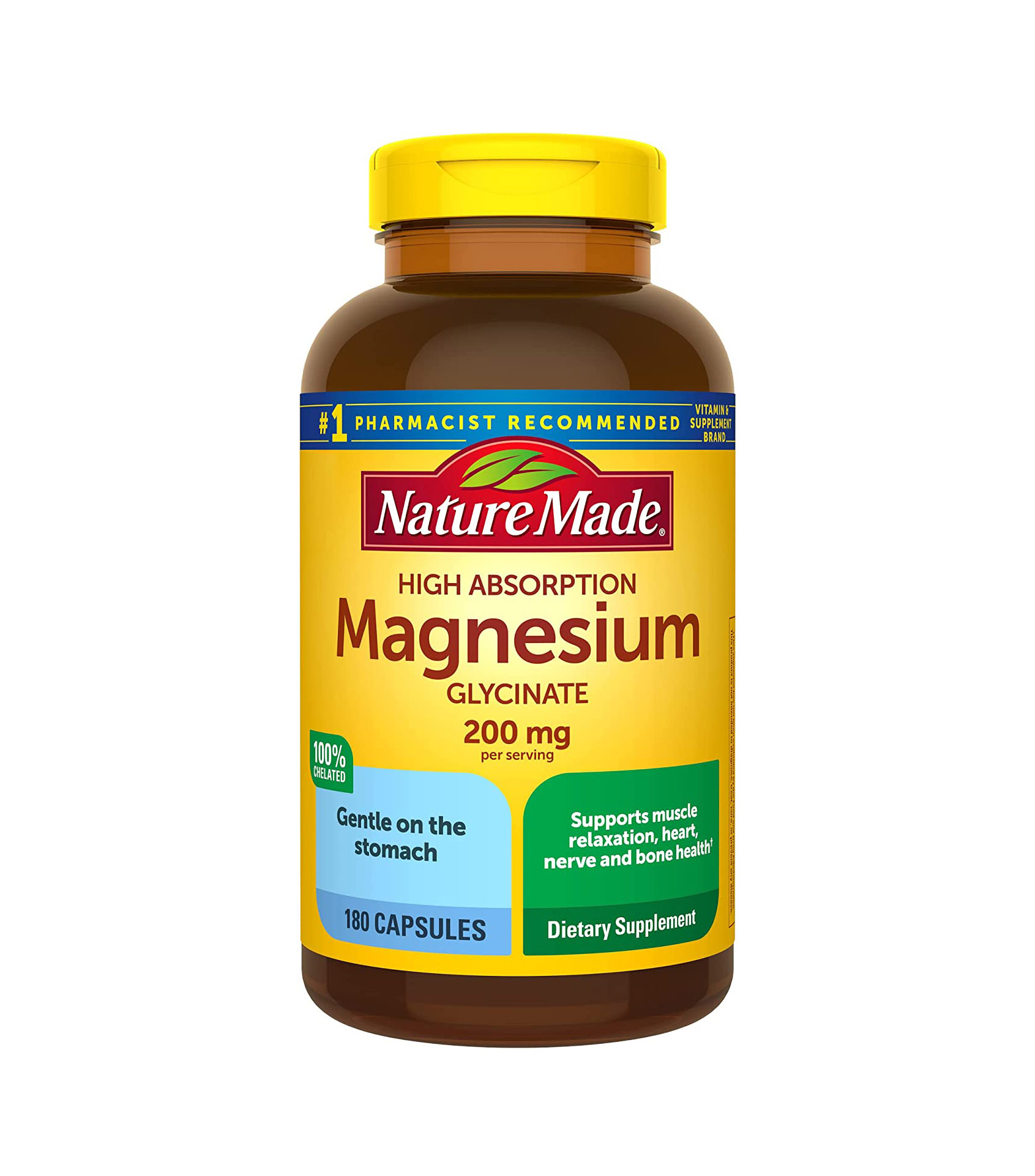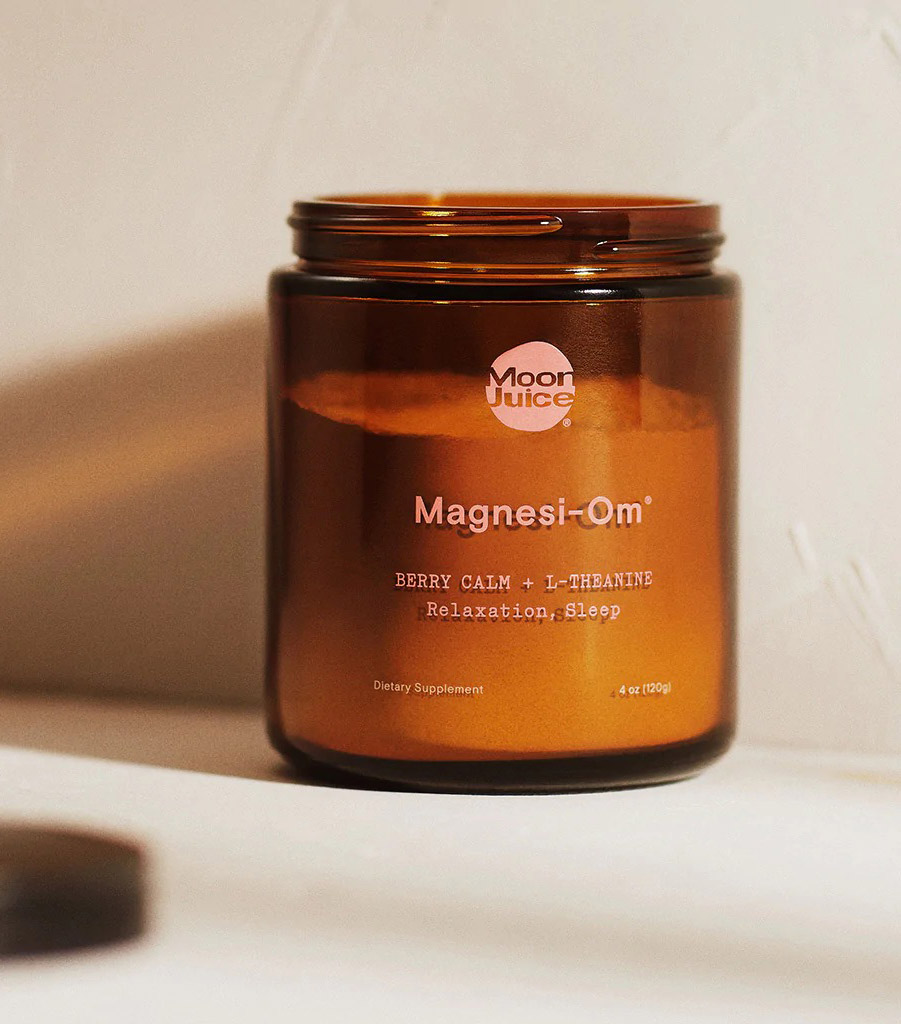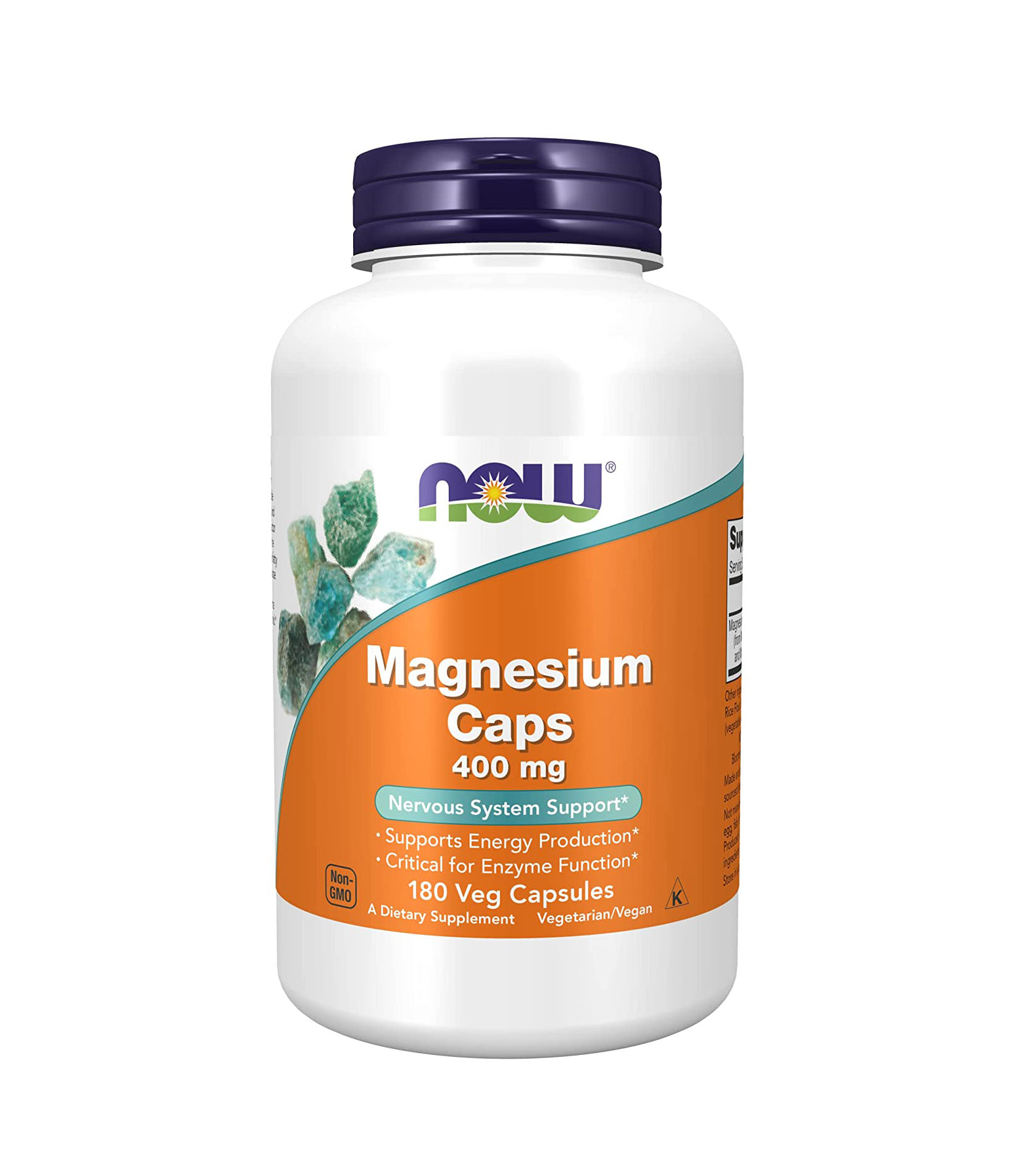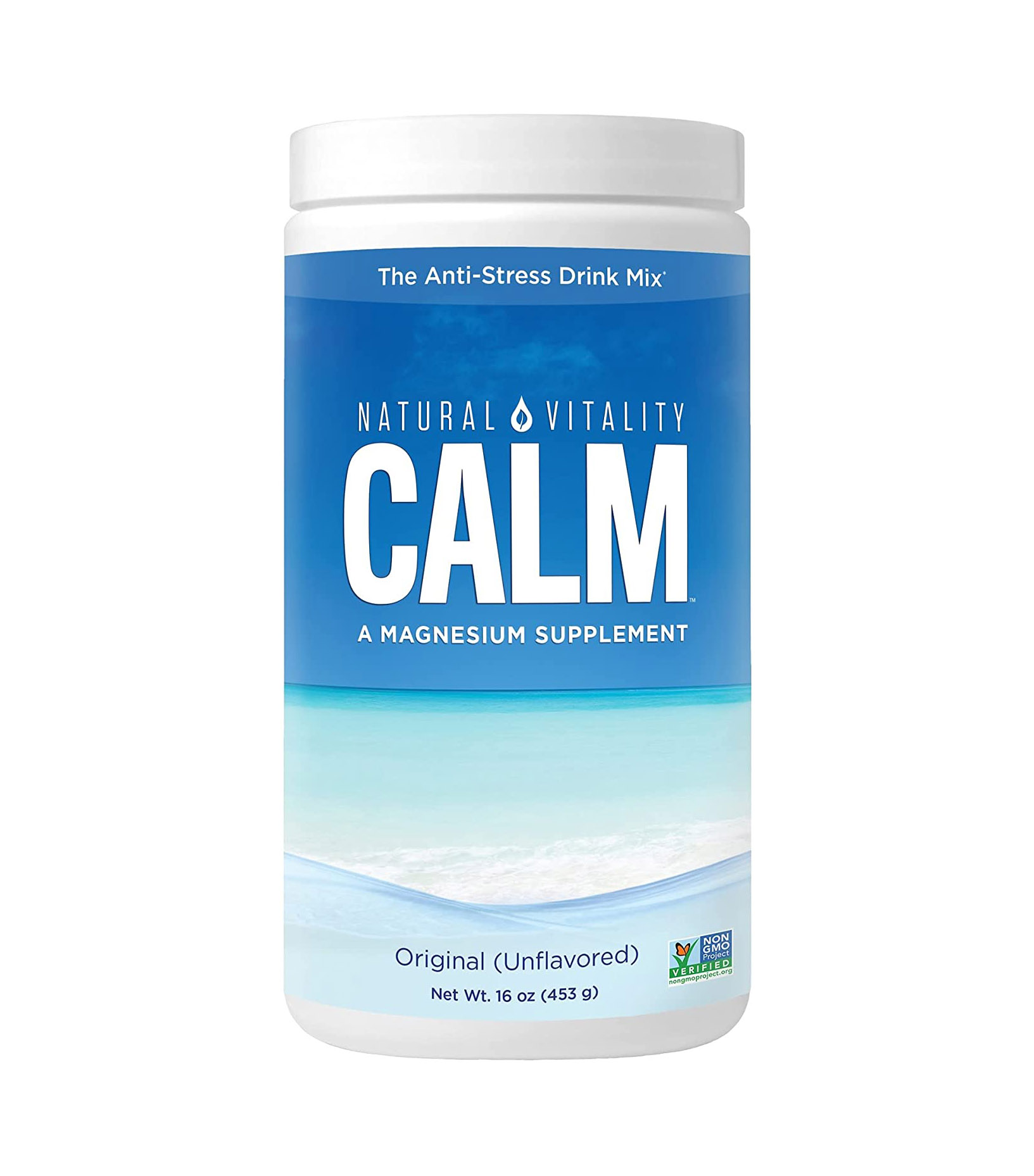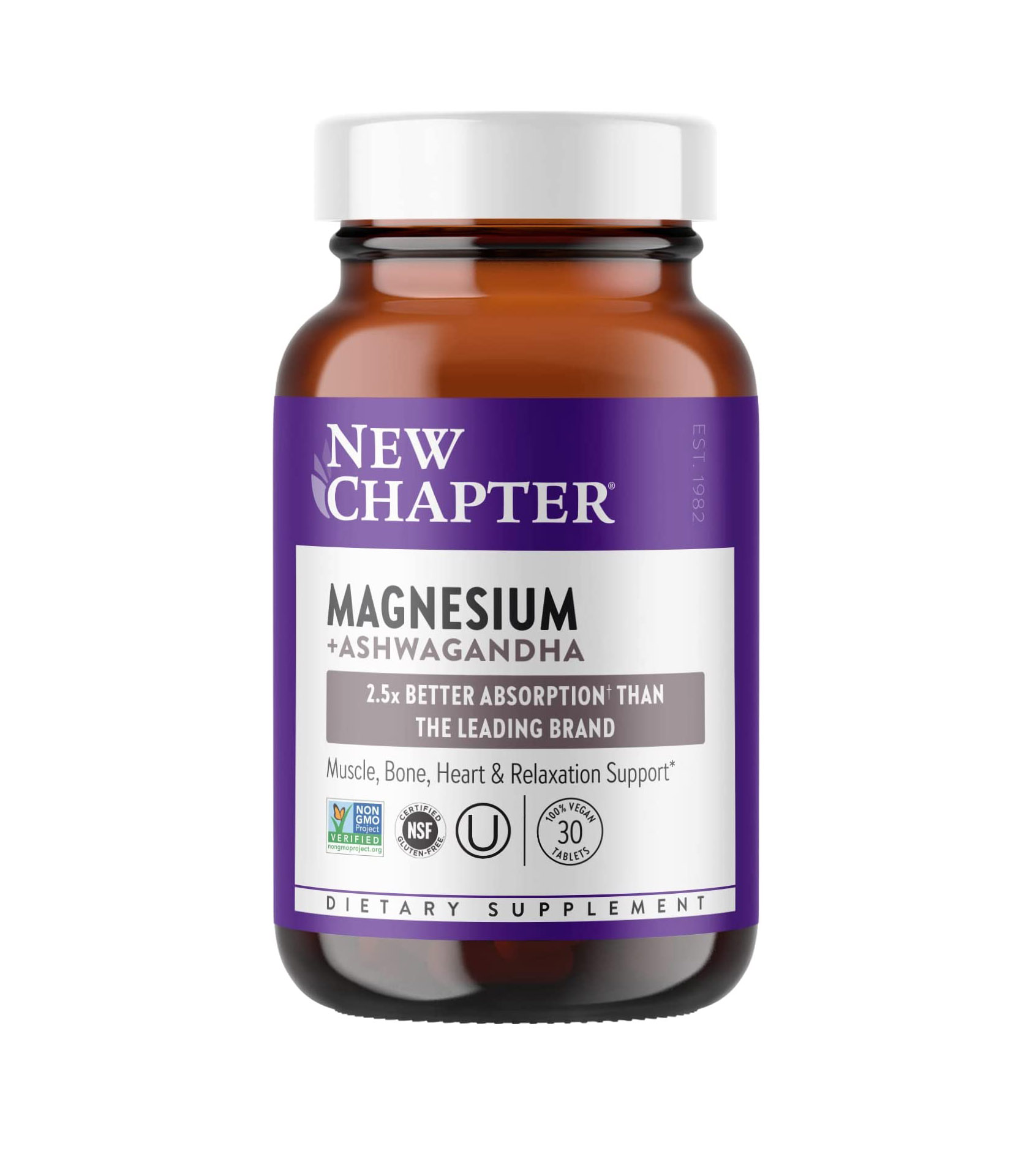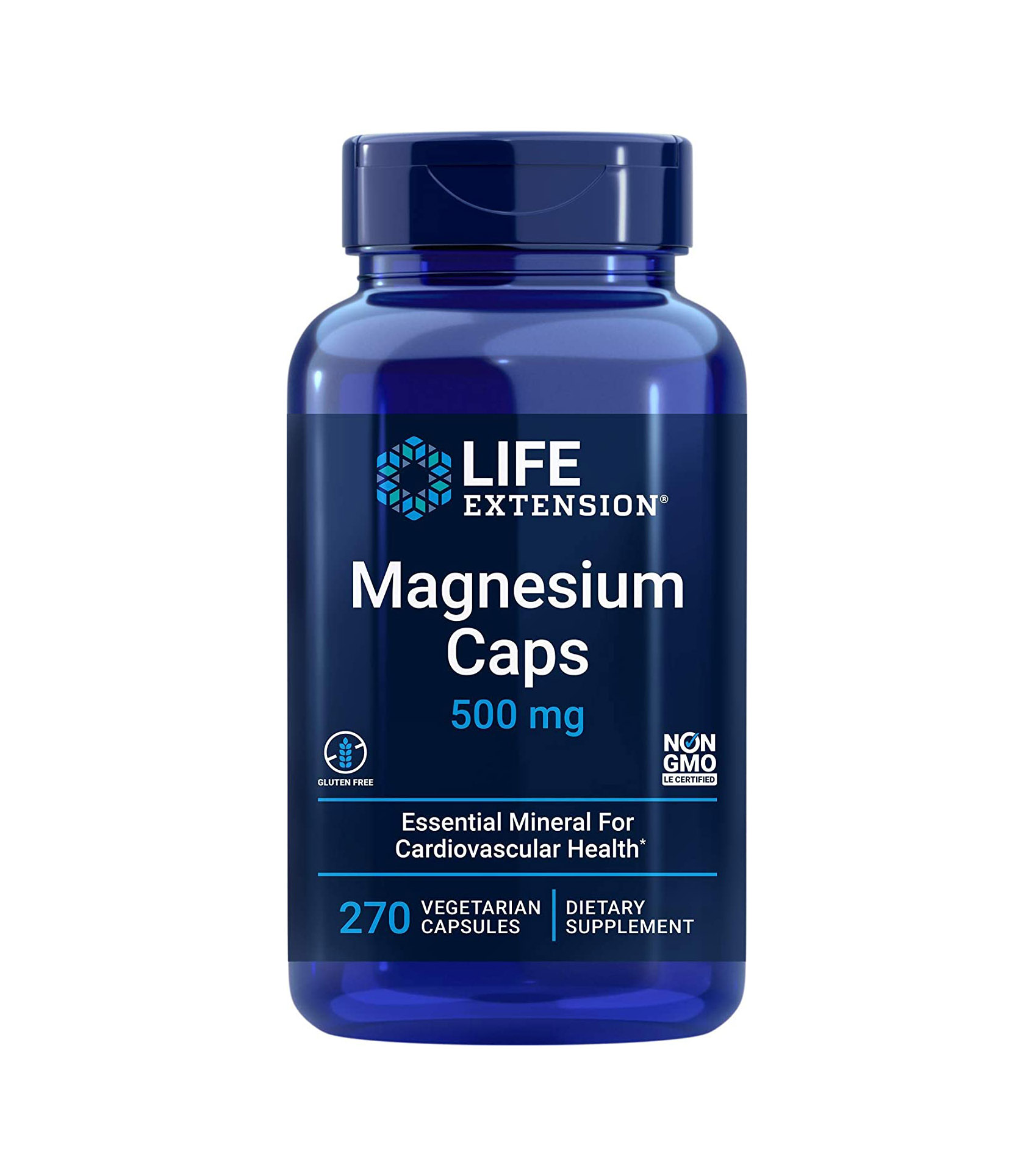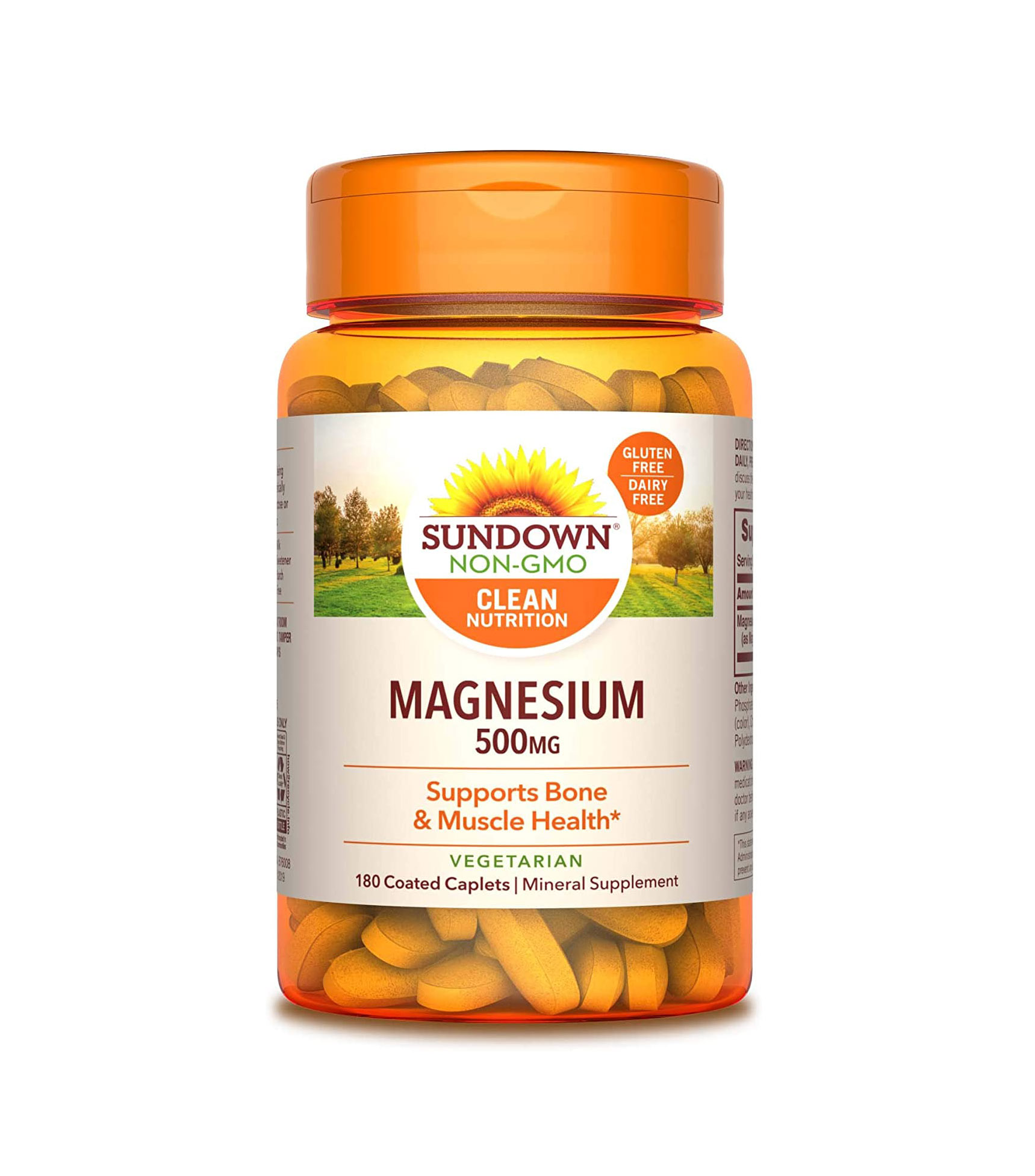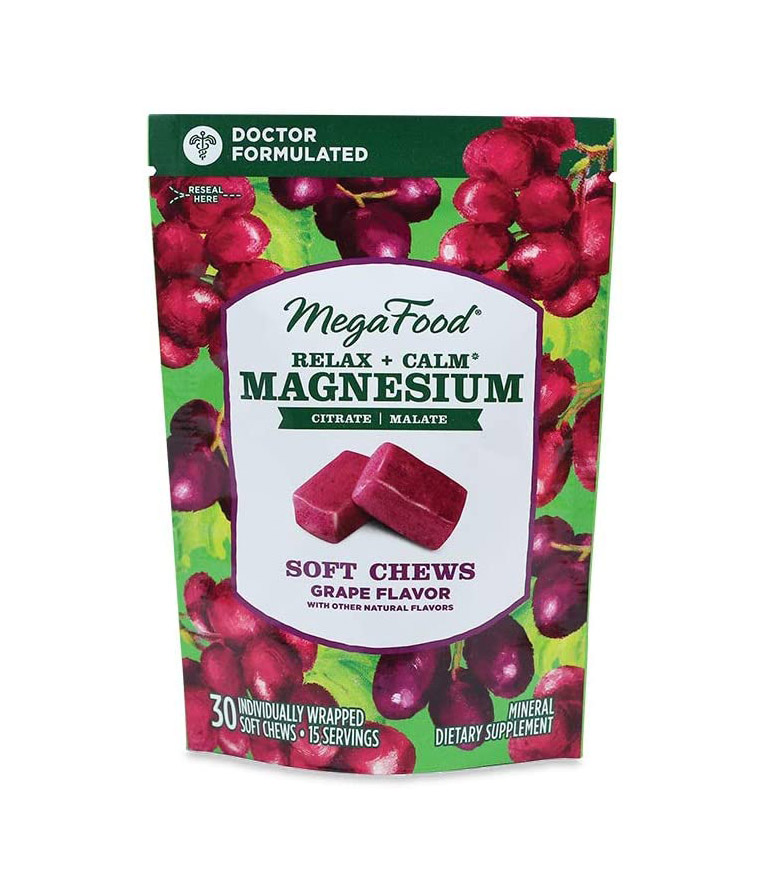Taking This Supplement Improves Sleep, Regulates Blood Pressure, and More

Magnesium is an essential mineral that does a whole lot for the body. Amanda Holtzer, MS, RD, a dietitian at Culina Health, explains that it's a mineral that's crucial for human functioning, and is found in the body and in many different foods. "Magnesium serves as a cofactor in more than 300 enzyme systems that catalyze and regulate biochemical reactions in the body—aka, without magnesium, these reactions cannot happen successfully," Holtzer explains.
"Some of these reactions include protein synthesis (proteins help carry out just about every cell function), blood sugar regulation (super important for everyone, but especially for those with prediabetes or diabetes and those trying to manage their weight), muscle function, blood pressure regulation, bone development, DNA and RNA synthesis (aka the building/repairing of our body's cells), and nerve function."
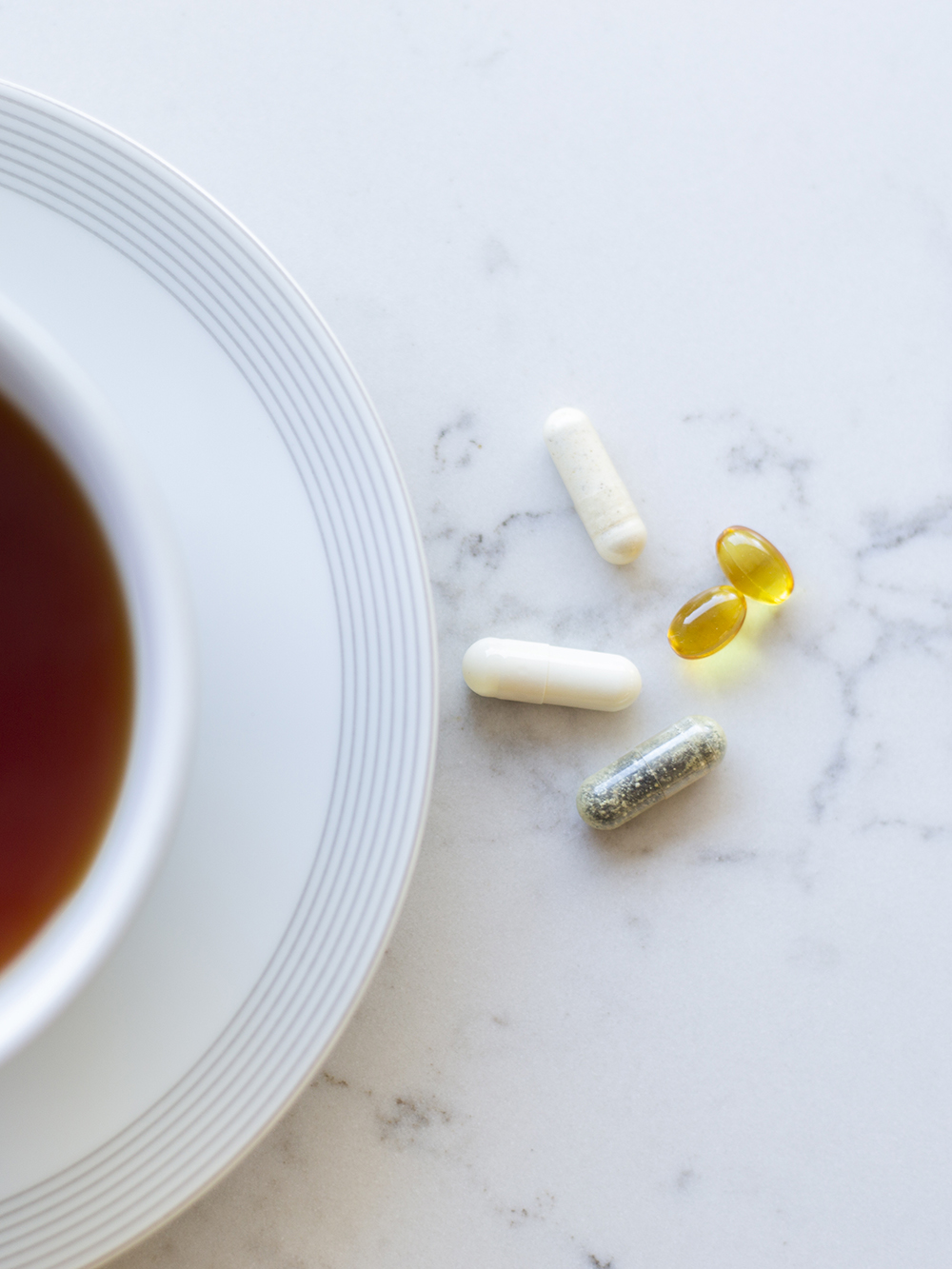
Some benefits of magnesium include:
Improve Sleep: Magnesium can help calm your mood and ease body tension, which can help you transition to sleep time.
Help with Muscle Function: "Magnesium is a natural mineral present in our bodies, and it is also an electrolyte—a positively charged molecule that is essential for nearly every cell in our body," explains Jennifer Maeng, MS, RD, CDN, LD, CNSC, the founder of Chelsea Nutrition and Twinlab's resident registered dietitian. Most notably, magnesium ensures the healthy function of over 300 known enzyme systems in your body, systems that help with protein synthesis, muscle and nerve function, blood glucose control, blood pressure regulation, and energy production."
Mood Stabilizer: "Magnesium also helps transport calcium and potassium in and out of cells, a process that helps give us nerve impulses, muscle contractions, and a healthy heartbeat," Maeng says. "Because it regulates metabolism related to mental function and mood stabilization, this is why headaches, irritability, and feelings of depression can be symptoms of low levels."
Bone Mineralization: Magnesium is required for the structural development of bone, DNA and RNA synthesis, and the creation of an important antioxidant called glutathione, Maeng says.
Lowers Blood Pressure: Holtzer says getting adequate amounts of magnesium may help to lower blood pressure. It might also lower your risk of cardiovascular disease and improve respiratory function.

Improves Bowel Movements: Magnesium citrate can regulate healthy bowel movements, and alleviate constipation and bloating.
Diabetes Prevention: Enough consumption of magnesium can also help lower the risk of diabetes, Holtzer says.

So from that list above, you can really see that magnesium is a crucial mineral for whole-body health. The good news is you're able to reap some of those benefits through your diet. Magnesium-rich food sources include leafy greens, nuts, seeds, fish, whole grains, legumes, and bananas. If you have a balanced diet, you may be able to get the recommended amount daily. Maeng adds that vitamin D helps increase the absorption of calcium, magnesium, and phosphorous, so regular intake of yogurt, fortified plant milk, and fish can help.
But there are some people who might experience a magnesium deficiency. "The Recommended Dietary Allowance (RDA) of magnesium for adults is 400–420 mg daily in men and is 310–320 mg a day for women, a number that increases to 350–360 mg daily in pregnancy," explains Austin Perlmutter, MD, an author and Senior Director of Science and Clinical Innovation at Big Bold Health. "For context, one ounce of almonds contains 80 mg of magnesium, while a half cup of boiled spinach contains 78 mg. Notably, data from the USDA shows that about half of Americans don't meet their recommended daily intake for magnesium, a number that increases to over two-thirds in adults over age 71."

If you're not getting enough magnesium, that's where supplementation can be helpful. It's important to note, also, that some people can also be more prone to a magnesium deficiency. Perlmutter says that might be the case for people with GI issues or those who are taking GI medications or medications to lower blood pressure. Other factors include taking birth control pills, exercising a lot, being a picky eater, and being older with a decreased appetite.
You can visit your doctor, dietitian, or healthcare professional to talk to them about your supplementation options and if it's necessary. "Supplements can absolutely help maintain good levels of this mineral in your body if you are not able to get it from your diet," Maeng says. "Taking too much magnesium is rare because your kidneys will excrete out any magnesium it does not need. The normal blood serum range for magnesium is 1.6–2.6 mmol/L, and your doctor can test your levels during your annual physical exam. However, the magnesium in your blood only accounts for 1% of your total body magnesium so it isn't always the best indicator of your magnesium status."
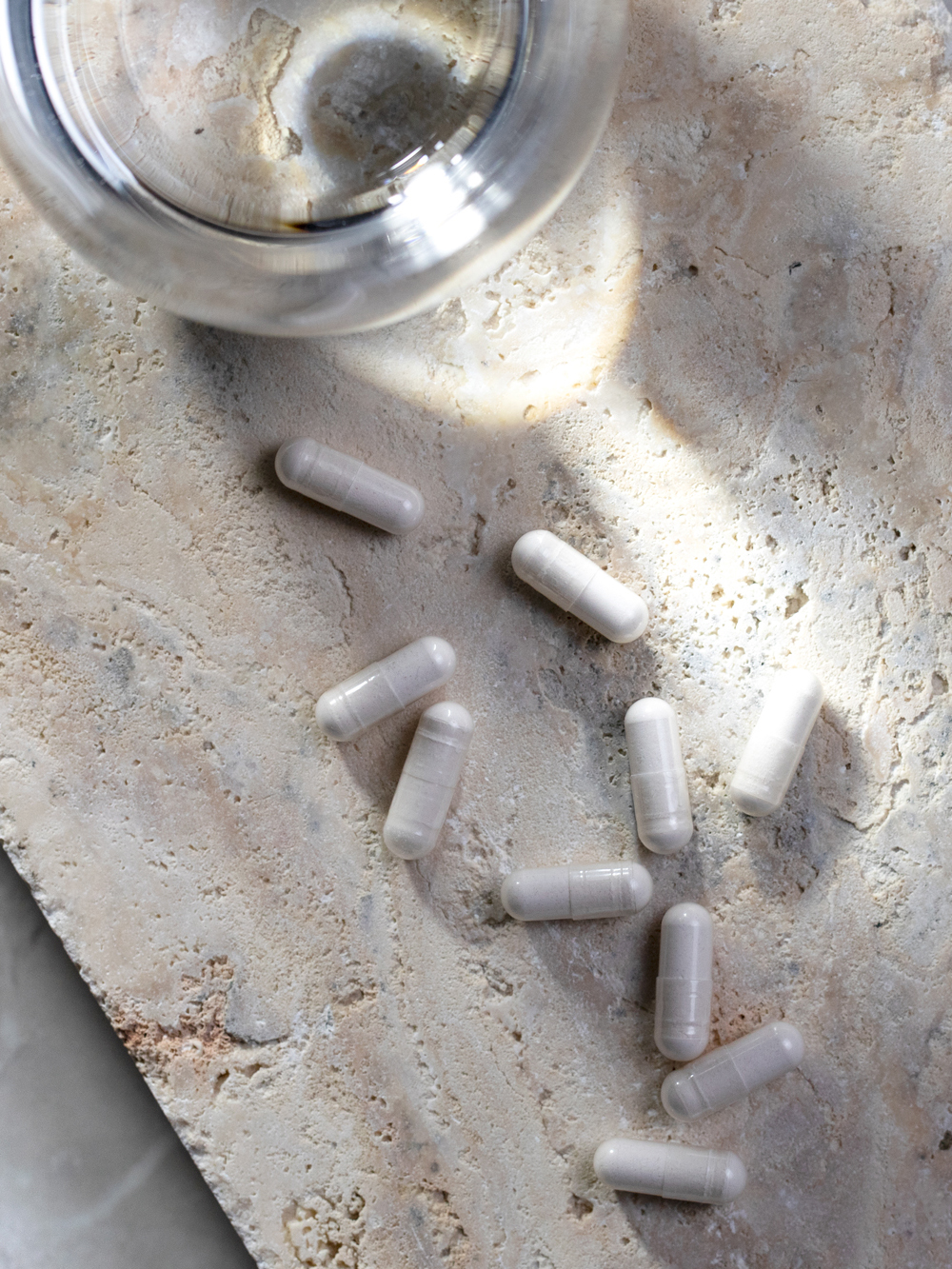
If you do find yourself shopping for a supplement, keep in mind that there are different forms of synthesized magnesium. These are some of the ones you'll find:
Magnesium oxide: "Magnesium oxide is the cheapest form of magnesium, and therefore the one you'll likely see most commonly in the grocery store," Holtzer says. "Here's the thing—it has low bioavailability, aka, the body doesn't absorb it well. Nonetheless, it's often used to treat symptoms like heartburn and indigestion." Maeng adds that it can also be used to reduce headache symptoms, and when combined with vitamin B6, it can help treat PMS-related stress and anxiety.
Magnesium citrate: Holtzer says it has a very high bioavailability, which means it's effective because the body is able to absorb it more easily. She adds that many forms of magnesium citrate have a laxative effect and are often used to treat constipation.
Magnesium glycinate: This is a combination of magnesium and glycine. "Glycine functions in the body as an inhibitory neurotransmitter, which means it blocks or prevents chemical messages from being passed along in the brain," Holtzer says. "For this reason, magnesium glycinate is often used for its calming effects, and it is taken to promote sleep health."
When looking at supplement bottles, Maeng suggests looking at the form of magnesium, the quantity in milligrams per pill, and any additional ingredients. And Holtzer recommends looking for labels with NSF International, US Pharmacopeia, Underwriters Laboratory, and Consumer Lab.
Take a look at the best magnesium supplements to consider below.
1. TwinLab Magnesium Caps
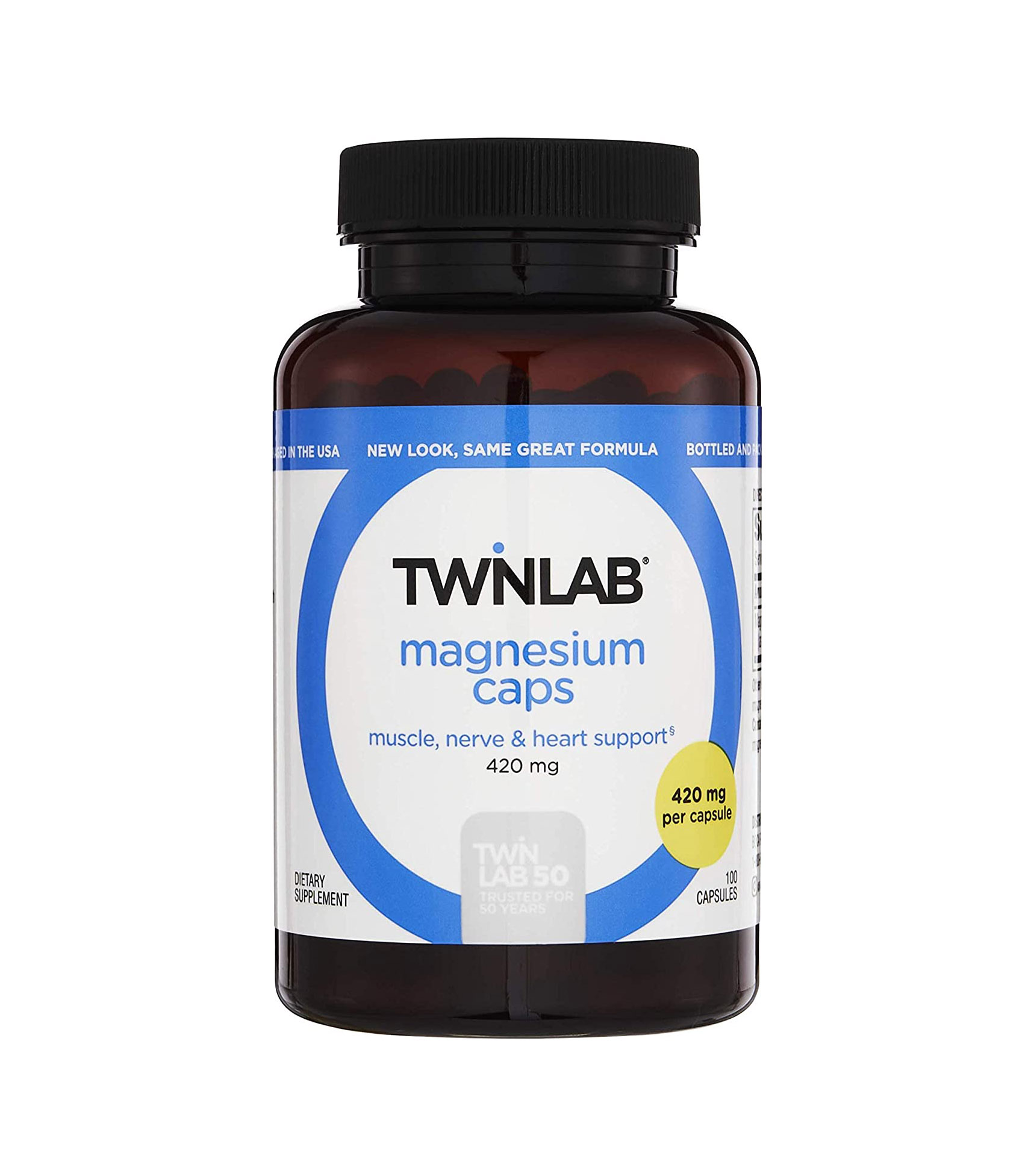
"When I want to recommend magnesium oxide, my go-to is Twinlab's Magnesium Caps," Maeng says. "Each capsule has 420 mg of magnesium and my clients like that they don't have to take multiple large pills daily to meet their dosage as Twinlab magnesium caps are small and easy to swallow."
2. Pure Encapsulations Magnesium (Citrate)
3. Thorne Magnesium Citramate
4. Pure Encapsulations Magnesium (Glycinate)
5. Nature Made Magnesium Glycinate
6. Moon Juice Magnesi-Om
7. Now Magnesium Caps
8. Garden of Life Magnesium with Pre and Probiotics Gummies
9. Natural Vitality Calm
10. New Chapter Magnesium + Ashwagandha Supplement
11. Life Extension Magnesium Caps
12. Sundown Magnesium Supplement
13. MegaFood Relax + Calm Magnesium Soft Chews
Next: 16 Essential Vitamins Every Woman Needs—and Might Not Be Getting Enough Of
This article is provided for informational purposes only and is not intended to be used in the place of advice of your physician or other medical professionals. You should always consult with your doctor or healthcare provider first with any health-related questions.
Sarah is lifestyle writer and editor with over 10 years of experience covering health and wellness, interior design, food, beauty, and tech. Born and raised in Los Angeles, she attended New York University and lived in New York for 12 years before returning to L.A. in 2019. In addition to her work at Who What Wear, she held editor roles at Apartment Therapy, Real Simple, House Beautiful, Elle Decor, and The Bump (sister site of The Knot). She has a passion for health and wellness, but she especially loves writing about mental health. Her self-care routine consists of five things: a good workout, “me” time on the regular, an intriguing book/podcast/playlist to unwind after a long day, naps, and decorating her home.
